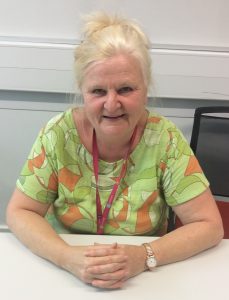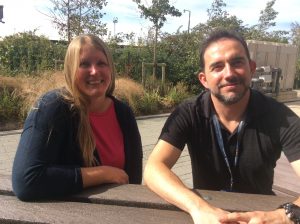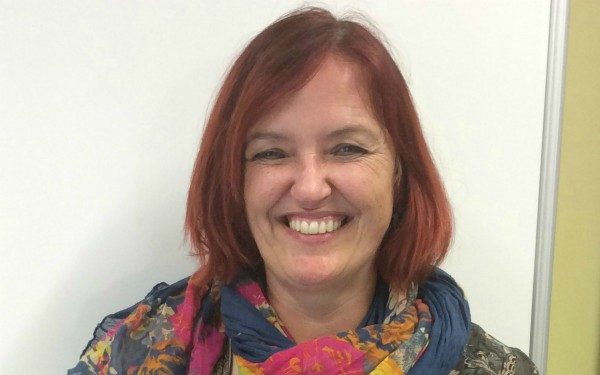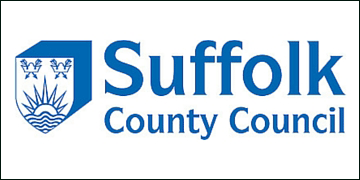Social workers are encouraged to build face-to-face relationships with the families and children they help, so why shouldn’t that same principle apply between the teams that are working with those same families?
Building networks
Lynn Robinson, a consultant social worker in Suffolk County Council’s Lowestoft office, has seen the difference co-location and close relationships offer first-hand. Lynn is responsible for managing the welfare and protection of children, from pre-birth to 18 in the northern area.
“As a social worker, being surrounded by the other teams you work with really helps to ensure stability and permanency for the children and families we support,” she says. “We can access advice on challenging and don’t feel like we are working in isolation. I feel that people are more willing to give you five or 10 minutes of their time when you are face-to-face.”
Family support practitioners
 In Lowestoft staff are encouraged to sit with different colleagues to support networking and joined up planning. Other county intensive support social work services such as edge of care (family solutions) and exploitation teams (make a change) are based alongside frontline social workers in each locality.
In Lowestoft staff are encouraged to sit with different colleagues to support networking and joined up planning. Other county intensive support social work services such as edge of care (family solutions) and exploitation teams (make a change) are based alongside frontline social workers in each locality.
Vicky Wood, practice lead in one of Lowestoft’s early help family teams, undertakes direct family work and provides practical support to help social workers. She says: “Family support practitioners can help social workers build up a robust picture of the vulnerable children because they have the resource to visit schools and children’s homes more often than social workers are sometimes able to.”
This resource means that family support practitioners can intercept and support children and families before a situation escalates, potentially lowering the caseloads for frontline social workers.

Jacquie Gould
Jacquie Gould, area service manager at Suffolk County Council, states that the evidence of successful early help intervention as well as joint working cases with social workers, means families receive a consistent and positive service, whoever is providing it. Early help support has resulted in Suffolk’s social work assessment rate per month being less than the national average and many of its statistical neighbours. “This is because our early help teams work so closely with us that they understand the issues and build the right relationships with families to effect change, which reduces the need for social work intervention.”
Support for social workers
Social workers in Suffolk also have access to onsite occupational health, counsellors, and psychologists who can support staff as well as working directly with families, Lynn says. “The nature of social work is that staff can pick up vicarious trauma linked to the cases they handle, so being able to access this support on site is invaluable,” she says.”
“Sometimes we are involved in cases where we have second or third generation of families that are known to services,” adds Lynn. “And it is about unpicking these issues, seeing what that trauma looks like and how best to support that. That is quite a specialised task, so having psychologists and counsellors onsite who are able to share their expertise really helps us.”
Professional family
Being able to liaise with these different teams and disciplines is crucial, explains Nick Mawer, who has worked across four different services during his 16-year social work career with Suffolk, and currently works in the fostering team.
“I have been able to build up really good support networks with the youth offending team, early help, the children’s social care teams and in my current role in short-term fostering,” he says.
“If I don’t know the answer to something, I know someone who does because of my experience and the people I have worked with. It also helps that these people are all working under one roof.”

Laura Marsh and Nick Mawer
This has been proven in his collaborative work with long-time foster carer Laura Marsh. Nick has worked with Laura for around three-and-a-half years and together they have been able to take advantage of the wealth of skills in the council office and the close proximity they are to onsite health visitors and the children’s contact centre (just metres from the council building).
“It means that social workers only have a short walk from one place to the other to resolve an issue,” she says. “That makes it easier for families too because they don’t have to move around too many buildings to get their needs met.”
Liaising with social workers also helps the fostering team to enhance their matching process when placing children in care.
“We can really bring that child to life – instead of them being some notes on a file – and really dig down into the detail of their care needs to ensure that the matching is as precise it can be,” says Nick.
“It also helps with providing continuity of care for the child and family because all of their services from early help to child in care and beyond are under one roof,” said Laura. “It is a bit like a family.”
At the heart of Suffolk’s focus on delivering the best for vulnerable children and families is building robust relationships. “Social work is essentially a people business and people are at the heart of what we do. That is what holds everything together and helps us to find solutions to problems,” Nick concludes.
THE COUNCIL:
• supports flexible working including job share, part time and mobile working
• supports career pathways for social workers wishing to progress and develop in front line practice as well as specific interests
• will invest in you in return for your investment in our families and children
• pays a retention payment of up to £4000
• offers a relocation package of up to £8000
• offers car leasing scheme
• offers an optional loan of £2000
• provides a welcome payment of £500




 Facebook
Facebook X
X LinkedIn
LinkedIn Instagram
Instagram